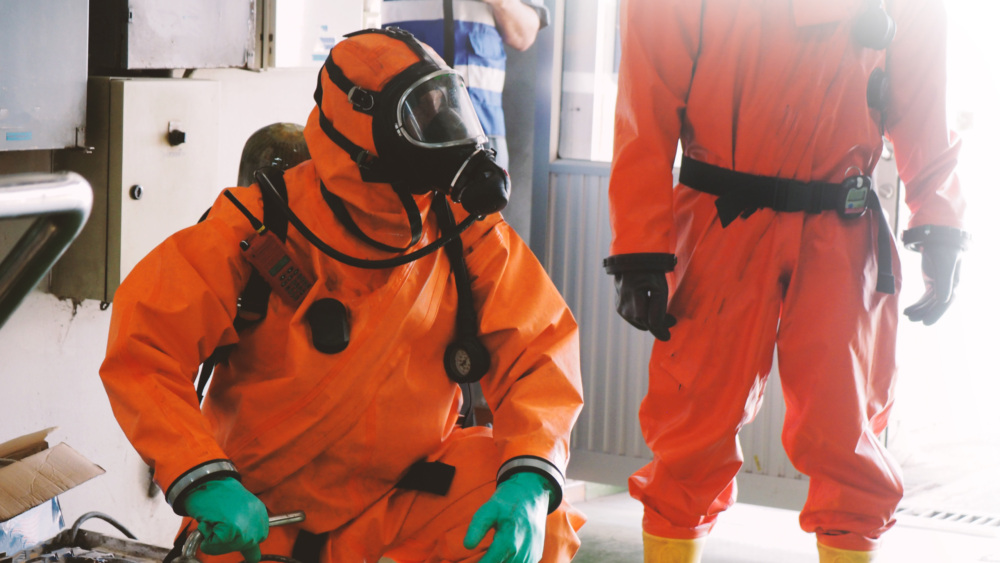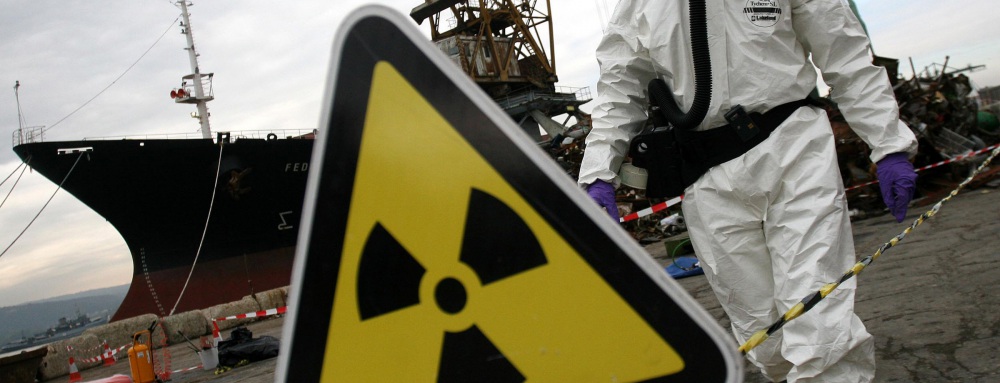
Laura S. H. Holgate Ambassador (ret.)
Vice President, Materials Risk Management
Thank you very much, and a special thanks to the IAEA and the Scientific Secretariat for organizing this international conference. It’s an honor to join you today and represent the Nuclear Threat Initiative (NTI) alongside all the prestigious cooperating organizations represented on this panel.
International organizations and the global non-governmental community have played a major role in strengthening radiological security worldwide. They provide governments and leaders with data-driven assessments of global radiological security progress, analysis of gaps in the global radiological security architecture, and important recommendations on how to make improvements to reduce or even eliminate radiological risks.
I’d like to focus today on the growing risk of radiological terrorism and ways we can work together to mitigate those risks.
About NTI
Before I talk about challenges and the work we have underway, let me share a little bit about my organization, the Nuclear Threat Initiative (NTI).
For those of you who may be unfamiliar with NTI, we are a non-profit, non-partisan organization based in Washington DC dedicated to reducing the risks posed by weapons of mass destruction and disruption – and that means nuclear, biological, radiological, chemical, and cyber. As our name suggests, much of our work concerns nuclear risks – but we have a robust radiological program, and that is what I will focus on today as it has direct implications for this conference.
NTI’s mission in this area has been to develop risk mitigation strategies, create platforms for cooperation, and advance national and international efforts to prevent a “dirty bomb” attack. Towards this end, we are working with a wide range of stakeholders in governments and the private sector to raise awareness, strengthen standards, improve implementation, increase transparency, and improve governance and management arrangements for radiological materials. NTI works transparently with United States and other governments, and we can often add validation, information, convening power, reputation, leadership – and sometimes modest resources – to achieve these shared goals.
Nearly all our work builds on national and international support and expertise. This conference underscores how important it is to have broad participation in international security work, both among governments and with non-governmental organizations.
A Challenging Backdrop
Today, there are tens of thousands of radioactive sources in over 100 countries. They are used in medicine, industry, agriculture, academic, and government facilities for a variety of beneficial purposes.
In what seems a cruel paradox, the very same isotopes used for life-saving blood transfusions and cancer treatments also can also be used to build a “dirty bomb.” Many of these sources are poorly secured, vulnerable to theft by terrorist organizations seeking the materials needed for radiological dispersal devices or other malicious purposes.
Terrorist groups and “lone wolf” actors can be found all over the world. If we allow terrorists to obtain and use radiological materials, the effects will be disruptive and very costly – and the damage won’t discriminate based on where the terrorists obtained the materials. It will be a collective failure, and we will all suffer the consequences. Imagine if Wall Street or the port in Rotterdam or the Singapore airport or any other iconic or essential piece of global infrastructure became a no-go zone overnight—and for many years to come.
And despite important efforts to better secure radiological sources, the existing global system for securing radioactive materials has significant gaps. Today, there is still no comprehensive global system for managing radiological materials: no international legally binding “rules of the road” that all states follow, little visibility into actions that countries are taking, and no international oversight to confirm that countries are fulfilling their security responsibilities so that we can benchmark our progress. Moreover, both adherence and implementation of the IAEA Code of Conduct on the Safety and Security of Radiological Sources and its related guidance is voluntary in nature and remain far from universal.
This leaves us with a challenging backdrop for our collective radiological security efforts – and at the same time – one that makes those efforts even more urgent. Today, global leaders understand that radiological security is much more than just a sovereign concern. It is a collective responsibility of all countries that produce, use, or export radioactive materials. Even those that don’t could be used as safe havens, staging grounds or transit points for illicit trafficking. Why? Because poor security in one country has the potential to affect us all.
These challenges underscore the importance of platforms like this conference and inspire us to keep working together to make the world a safer place.
So what role should International Organizations, NGOs, like NTI, and the private sector play in assisting States to fulfill their responsibilities in securing radioactive material and detecting material out of regulatory control?
NGO/Private Sector Role
We all understand that the responsibility for threat reduction rests with governments – but it’s also clear that governments cannot do this work alone. We also need the commitment and involvement of business leaders, non-governmental organizations, and the private sector – to bring pressure, know-how and fresh thinking to the table.
Moreover, a comprehensive radiological security regime cannot be sustained by laws, regulations and equipment alone — the legal responsibility and accountability to secure radiological sources should be shared by the owners and operators of sources. Because radiological materials are mainly used by the private sector and are not under immediate government control, nongovernment entities represent the “first line of defense”, as they are required to translate legislation and regulations into concrete actions that are implemented by all users. The private sector also plays an important role in global radiological security efforts by advocating for best practices and ensuring corporate responsibility and appropriate liability coverage for radiological security.
If the radiological industry and civil society were fully engaged, the international community could be much more confident that standards set by international bodies and implemented by governments created radiological security. In the ideal scenario, the radiological industry in every country would take urgent steps to create a radiological security culture among regulators and private sector operators, based the guidance of the IAEA. All organizations would accept that radiological security is a responsibility that must be taken seriously at all levels, from the boardroom to the blood bank.
As an NGO and a member on the planning committee for this conference, we at NTI are encouraged to see so many representatives from the private sector here this week, including those from non-governmental organizations, professional societies, and academic institutions. NTI’s advocacy for their involvement has brought a diverse community together to share experiences, as well as technology solutions. More importantly, it has brought increased recognition that the private sector is an integral supporter and contributor to global radiological security efforts.
IAEA Role
The IAEA’s role reflects its broad membership, its authoritative mandate, its unique expertise, and its substantial experience of providing technical assistance and practical guidance to states. Member States should increase support to the IAEA so that the Agency can continue to play its central role in strengthening the global radiological security through the development of standards and guidance documents, the convening of international conferences and workshops, legislative drafting support, and through assistance and review services, such as the Integrated Nuclear Security Support Plans (INSSPs). IAEA can also expand its nascent efforts to apply a “one-house” approach to radiological security and alternative technology through enhanced cooperation among the Nuclear Applications, Technical Cooperation, and Nuclear Security offices. Member States should request more of these peer review missions and share the non-sensitive report findings and recommendations with other states to promote transparency and accountability.
In order for the IAEA to continue to grow in strength and effectiveness, Member States also should reinforce the IAEA’s “essential role” in coordinating global nuclear and radiological security efforts. This will require Member States to provide predictable programmatic funding as well as extra-budgetary contributions to implement the IAEA radiological security action plan and to fulfill requests from Member States for radiological security support.
Regulator Role
Enhancing radiological security globally requires the development and implementation of stringent regulatory procedures at the national level. States need to routinely assess their own legal frameworks on radiological security and to identify steps their competent authorities need to take to establish regulations and processes to enhance radiological security. This will also allow regulators to assess the gaps in the national regulatory frameworks and to work out country-specific implementation plans for regulations addressing the physical protection radioactive material and associated facilities, transport security, alternative technologies, and for the interdiction and recovery of radioactive material out of regulatory control.
Regulators can also play a unique role in bridging public-private partnerships and coordinating the dissemination of public health solutions that eliminate risk through the removal and replacement of radioactive sources with equally effective alternative technologies that do not pose security risks. This will require regulatory agencies to institute legal requirements and incentives in support of alternative technologies, where applicable.
NTI’s Radiological Programs
At NTI, we have several projects underway to promote innovative thinking and cooperation – and I would like to mention some details about a few that we are highlighting at this conference.
In addition to tracking countries’ radiological security progress and advocating for stronger international standards, NTI is working with hospitals and universities across the United States to encourage the replacement of Cesium-137 blood and research irradiators with effective alternative technologies. We are sponsoring a reception Tuesday evening to highlight the leadership of those who are working to achieve this outcome. We have also published a report that explains the risks associated with Cesium-137, describes the safe and effective alternative technologies available, and offers lessons-learned from cities and university-wide systems that are embracing the decision to phase out the use of Cesium-137. Ultimately replacing these radiological sources with alternative technologies is the best way to achieve permanent threat reduction.
Earlier today, NTI co-sponsored a Side Event that highlighted the success of our regional cooperation in Central Asia on radiological prevention and detection. Partnering with the Moscow-based Center for Energy and Security Studies, NTI organized two major workshops that brought together all countries in the region, their partner countries, and the IAEA, integrating the prevention and detection communities. This model provided a unique forum for networking, sharing best practices, and improving coordination on radiological security. NTI believes that this workshop model is replicable and sustainable at the regional level and at the international level.
In conclusion:
NGOs must stay vigilant in pushing the radiological security agenda forward and NTI will continue to shine a light on the work countries are doing and use our convening authority to help governments and experts fertilize new ideas.
As long as the threat of radiological terrorism persists, cooperative and inclusive engagement must remain a high priority for governments, industry, and civil society. Leaders must make defining a path forward a priority and the path must allow for an ambitious, forward-leaning agenda.
NTI looks forward to working with all of you to ensure that the commitments made at this Conference are translated into practical actions that will make the world safer for everyone.
Thank you.
Sign up for our newsletter to get the latest on nuclear and biological threats.
“The bottom line is that the countries and areas with the greatest responsibility for protecting the world from a catastrophic act of nuclear terrorism are derelict in their duty,” the 2023 NTI Index reports.
The COVID-19 pandemic has raised important questions about resiliency and preparedness for other catastrophic disasters, including nuclear and radiological emergencies. A new NTI-commissioned paper by Major General Julie Bentz (ret.), assesses potential gaps.
Nuclear and radiological security aims to ensure nuclear and other radioactive materials are secure from unauthorized access and theft, and that nuclear facilities are secure from sabotage.


